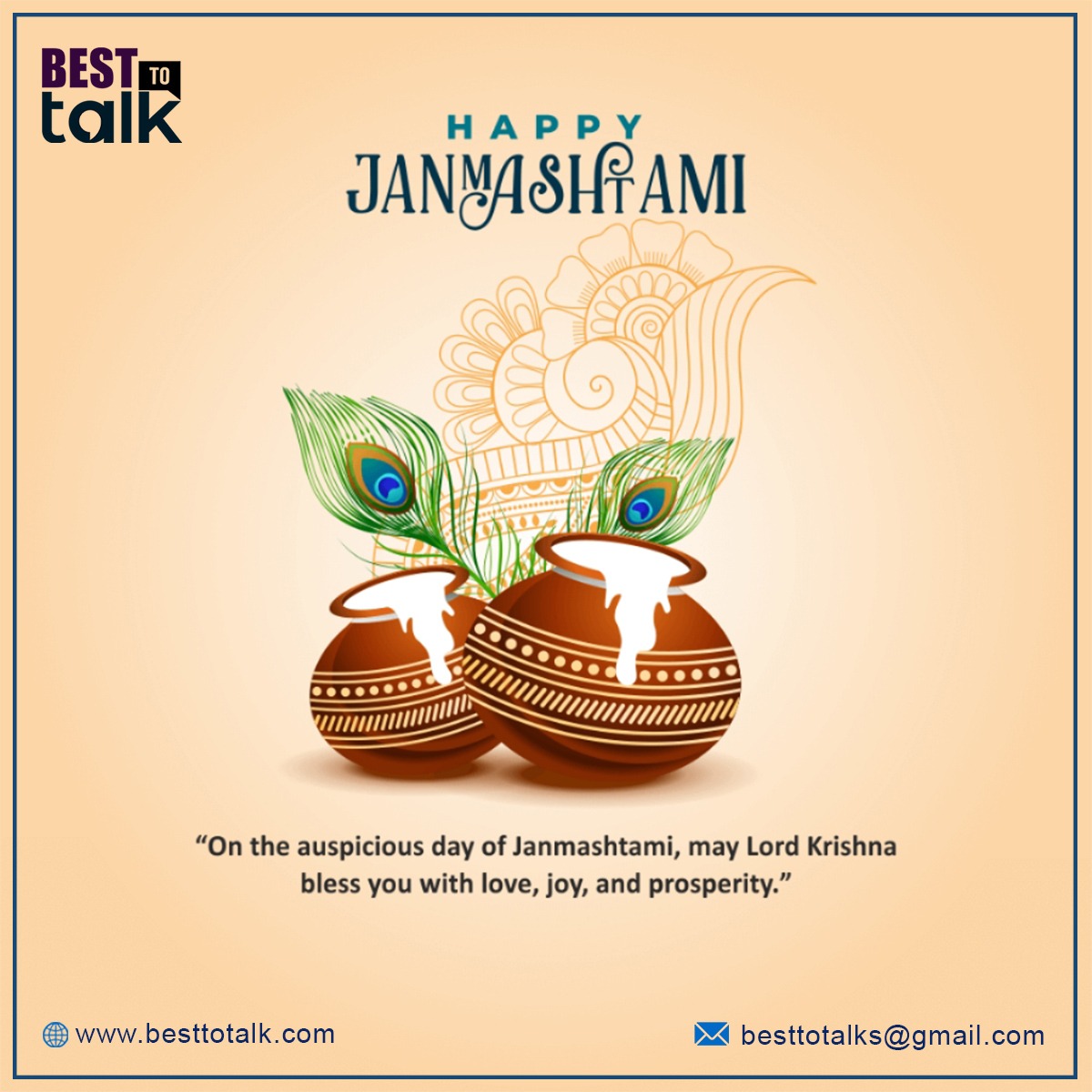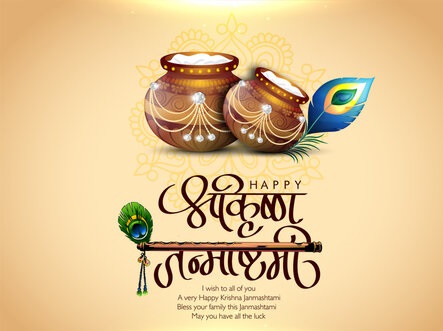Janmashtami, also known as Krishna Janmashtami or Gokulashtami, is one of the most celebrated Hindu festivals across India and the world. It marks the birth of Lord Krishna, the eighth avatar of Lord Vishnu, who is revered for his wisdom, charm, and mischievous nature. From Dahi Handi competitions in Maharashtra to soulful Bhajans and Kirtans across temples, the festival brings people together in devotion and joy.
In this complete Janmashtami celebration guide, Best To Talk takes you through the history, significance, rituals, and modern-day festivities of this vibrant occasion.
The Significance of Janmashtami
Janmashtami is celebrated on the eighth day (Ashtami) of the Krishna Paksha in the month of Bhadrapada (August–September) as per the Hindu calendar. The day commemorates the birth of Lord Krishna in Mathura, who was destined to end the tyranny of his maternal uncle, King Kansa.
Krishna’s life story is filled with divine miracles, playful mischiefs, and profound teachings—most famously in the Bhagavad Gita. For devotees, Janmashtami is not just a festival but an opportunity to reflect on Krishna’s messages of love, righteousness, and devotion.
Traditional Janmashtami Celebrations
Across India, Janmashtami celebrations are marked by fasting, night-long prayers, temple decorations, devotional songs, and dramatic reenactments of Krishna’s childhood stories. Let’s explore the key traditions.

1. Dahi Handi – The Spirit of Teamwork
In Maharashtra and parts of Gujarat, the festival’s highlight is Dahi Handi, inspired by Krishna’s childhood love for butter and curd.
A pot filled with curd, butter, and sweets is hung high, and teams of young men form human pyramids to break it. This event is not just about fun—it symbolizes unity, determination, and the joy of overcoming challenges together. Crowds cheer, music plays, and the atmosphere becomes electric with excitement.
2. Bhajans and Kirtans – A Melodic Offering
Temples and households resonate with Bhajans (devotional songs) and Kirtans dedicated to Lord Krishna. These songs narrate stories from Krishna’s life—his playful childhood in Gokul, his love for Radha, and his divine teachings.
Popular bhajans like “Achyutam Keshavam” and “Govind Bolo Hari Gopal Bolo” create a spiritual atmosphere that touches every heart. Many devotees spend the night singing and dancing in Krishna’s praise until midnight, the believed time of his birth.
3.Fasting and Midnight Puja
Many devotees observe a Nirjala fast (without water) or a fruit-only fast on Janmashtami. At midnight, temples perform Maha Abhishek of Krishna idols using milk, honey, ghee, curd, and holy water. The deity is dressed in colorful clothes and adorned with jewelry, peacock feathers, and fresh flowers.
The sound of conch shells, temple bells, and chanting of “Hare Krishna, Hare Rama” fills the air as devotees offer sweets like Makhan Mishri to the Lord.
4.Ras Leela and Cultural Performances
In Mathura, Vrindavan, and Dwarka, the festival is incomplete without Ras Leela—dramatic plays and dance performances depicting Krishna’s life. These performances bring alive the charm of Gokul, Radha-Krishna’s love, and the playful spirit of the young Kanha.
Children dressed as Krishna and Radha participate in fancy dress competitions, adding to the festive charm.
Janmashtami in Different Parts of India
. Mathura & Vrindavan – The birthplace of Krishna hosts grand processions, decorated temples, and traditional Ras Leela performances.
. Maharashtra – Dahi Handi events draw huge crowds, with teams competing for prizes.
. Gujarat – Devotees visit the Dwarkadhish temple, where Krishna spent his later years.South India – Houses are decorated with footprints of baby Krishna leading to the puja room. Special dishes like seedai and murukku are prepared.
. South India – Houses are decorated with footprints of baby Krishna leading to the puja room. Special dishes like seedai and murukku are prepared.
. North India – Temples organize Jhanki (tableau) exhibitions showcasing Krishna’s life.
Modern-Day Janmashtami – A Blend of Tradition & Technology
In recent years, Janmashtami celebrations have embraced technology. Many temples live-stream their midnight aarti for devotees worldwide. Social media is filled with motivational Krishna quotes, celebration reels, and festive greetings.
The spirit remains the same—devotion, joy, and togetherness—whether celebrated in person or online.
Delicious Janmashtami Special Foods
Food plays an important role in the festival. Popular offerings and treats include:
. Makhan Mishri – Krishna’s favorite combination of butter and sugar.
. Panjiri – A healthy sweet made of wheat flour, sugar, and dry fruits.
. Sabudana Khichdi – A fasting-friendly dish.
. Kheer and Laddoo – Traditional Indian sweets prepared for bhog.
The Deeper Message of Janmashtami
Beyond the festivities, Janmashtami carries a powerful spiritual message—to stand up for righteousness, embrace love and compassion, and live a life of truth.
Lord Krishna’s teachings from the Bhagavad Gita remind us that challenges are part of life, but with faith and determination, we can overcome them.
Conclusion
From Dahi Handi’s thrilling teamwork to Bhajans’ soulful devotion, Janmashtami is a celebration of life, faith, and unity. It connects generations, spreads joy, and strengthens the bond between people and the divine.
As you celebrate this year, light a diya, sing a bhajan, share sweets with loved ones, and remember Krishna’s eternal message—“Do your duty with love, and leave the results to me.”
Happy Janmashtami!
– Best To Talk
